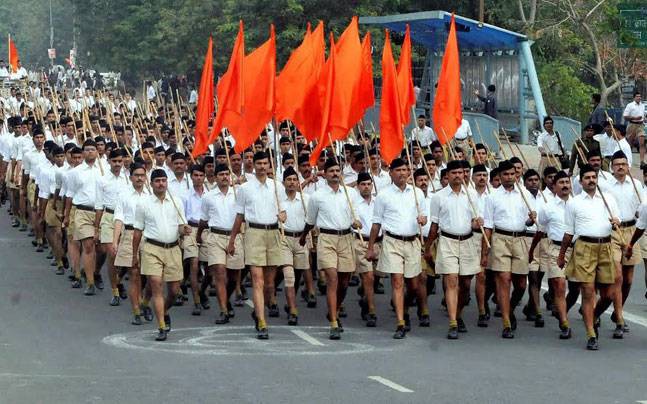
The Rashtriya Swayamsevak Sangh (RSS) will now step up a campaign against ‘love jihad’ and illegal religious conversion through enticements.
It will also get women, Dalits and Other Backward Classes (OBCs) to be the torchbearers of its “samajik sadbhav” (social harmony) agenda that also overlaps with the Sangh’s larger design of Hindu unity.
This is the decision arrived by the RSS after multiple meetings that chief Mohan Bhagwat held as part of his ongoing Awadh Prant visit in Lucknow.
For organisational purposes, the RSS has divided Uttar Pradesh into six parts — Braj, Meerut (both west UP), Kanpur-Bundelkhand, Awadh, Gorakhpur and Kashi (Varanasi).
‘Love jihad’ is a term coined by Sangh’s affiliate Vishva Hindu Parishad (VHP) to define Hindu women being lured by Muslim men through fake identity to enter a relationship and for being converted to Islam.
The RSS, according to its release, has also decided that the Sangh would accelerate its campaign to enlist ideologically inclined youths.
The process would gain momentum in the coming months.
The move holds special significance for two reasons — the 2024 Lok Sabha polls and the Sangh’s centenary celebrations in September 2025.
Special training camps or workshops to introduce youngsters to the Sangh’s ideology and functioning are already being held.
“It has been decided to step up the Sangh’s outreach campaign in rural areas, besides pressing the accelerator on anti-national activities, love jihad and religious conversion through enticements,” said an RSS leader.
‘Matantaran’ (religious conversion through enticements) and love jihad have long been on the Sangh’s agenda but got further impetus since 2017, when a “double engine” BJP government at the Centre and in Uttar Pradesh have been in power.
The RSS leaders also made it clear that the campaign was not directed against Muslims per se, but against “misguided youths”.
The Sangh has already floated a Muslim Rashtriya Manch (MRM) to connect with “nationalist Muslims”, a process that would continue, RSS leaders said.
Marginalised but numerically dominant and politically important communities have also been on the Sangh agenda.
OBCs and Dalits have been the mainstays of the BJP’s success in Uttar Pradesh since 2014 when the party did away with the perception of it largely being a party of upper castes and traders.
This change, a RSS functionary admitted, is also being noticed within the Sangh whose cades don’t use their surnames to conceal their caste identity, reflecting Sangh’s larger design on Hindu unity and grooming cadres with ‘nationalistic intent’. — IANS
